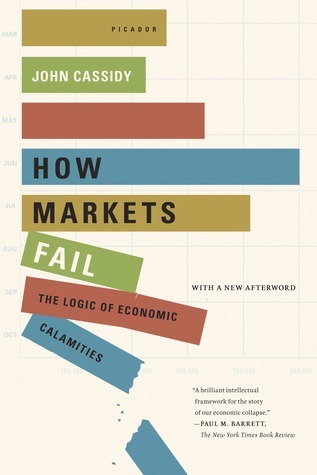
After the Music Stopped: The Financial Crisis, the Response, and the Work Ahead
Book Description
When the music stopped, the world trembled. Alan S. Blinder plunges into the chaos of the financial crisis, unveiling the shocking truths behind the economic collapse and the frantic response that followed. With gripping clarity, he navigates the intricate dance between policy and politics, revealing the frailty of a global system on the brink. As the dust settles, the stakes rise—what must be done to prevent another catastrophe? Packed with insight, urgency, and a call to action, this book challenges readers to confront a pivotal question: Is the worst truly behind us, or is the next storm just over the horizon?
Quick Book Summary
Alan S. Blinder’s "After the Music Stopped" offers a clear, authoritative exploration of the 2007-2009 financial crisis, dissecting both its causes and the intense policy responses that followed. Blinder, a former Fed vice chairman, frames the crisis as both a result of reckless financial innovation and regulatory failures. The book demystifies complex financial instruments, unpacks policy actions by the Fed and Treasury, and critically assesses the interplay between politics and economics during the rescue efforts. Blinder not only recounts how close the global system came to collapse but also evaluates which responses worked, which did not, and why misunderstanding and political opposition hampered recovery. Ultimately, he warns that real reform is still unfinished, stressing urgent lessons to build a safer financial future.
Summary of Key Ideas
Table of Contents
The Roots and Triggers of Financial Disaster
The financial crisis of 2007-2009 was neither accidental nor unavoidable. Alan S. Blinder details how a mix of risky mortgage lending, complex but poorly understood financial derivatives, and excessive leverage set the stage for disaster. Regulatory bodies overlooked warning signs, failing to understand the interconnected risks building up in shadow banking and among systemically important institutions. As house prices collapsed and defaults soared, the realization dawned that much of the financial system was exposed to massive, unaccounted-for losses. Panic swiftly spread from the U.S. to global markets, triggering cascading failures among major banks and investment houses. The sudden halt in credit—what Blinder refers to as the moment “the music stopped”—created a widespread economic freeze. Trust evaporated between institutions, leaving the economy reeling and millions facing job losses and home foreclosures.
The Unfolding Crisis and Contagion
Policy responses were unprecedented in both scale and speed. The Federal Reserve slashed interest rates to zero, created emergency lending facilities, and backstopped essential segments of the financial system. The U.S. Treasury, through TARP and other interventions, injected capital into banks and guaranteed vital market functions. These measures stabilized the system but fueled public anger, as many perceived them as bailouts for the very institutions that caused the disaster. Blinder emphasizes that while some mistakes were made, the rapid, creative responses of policymakers averted a complete meltdown. The financial crisis provided a stern stress test, highlighting the strengths and weaknesses of the toolkit available to authorities.
Government Intervention and Policy Response
Despite the technical successes, communication and politics became key obstacles. The complexity of the crisis and response made effective explanations difficult, leading to widespread misunderstanding and mistrust. Wall Street and Main Street were at odds, with resentment simmering over perceived unfairness. Political pushback against bailouts made it harder to implement effective solutions and led to some half-measures, slowing recovery. Blinder contends that the lack of political consensus, along with the backlash over government intervention, constrained the design and impact of reform efforts, leaving the financial system still vulnerable in some respects.
The Role of Politics and Public Perception
Blinder offers a critical appraisal of the reforms enacted in the aftermath. While many new regulations increased transparency and reduced systemic risk, gaps remain. Key reforms, such as better capital requirements and resolution authority for major non-bank firms, were steps forward, but lobbyists and divided politics diluted other needed measures. Blinder highlights the ongoing debates surrounding 'too big to fail' institutions and the shadow banking sector. The book warns that without sustained political will and a better-informed public, the U.S. financial system remains susceptible to future crises rooted in similar blind spots and incentives.
Reform, Lessons, and the Path Ahead
"After the Music Stopped" concludes with urgent lessons for the future. Blinder stresses the importance of robust regulation, clear crisis tools, and early intervention to minimize damage in future downturns. He urges policymakers to prioritize technical expertise and honest communication over partisan positioning. Lastly, Blinder cautions that complacency is the enemy of stability: financial crises often originate in amnesia about past mistakes. To avoid repeating history, leaders must embrace both humility and vigilance, learning the right lessons and committing to reforms before the next storm arrives.
Download This Summary
Get a free PDF of this summary instantly — no email required.





